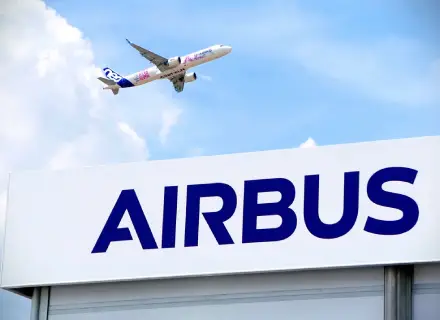Jet engine manufacturer CFM has consented to transfer some engines to European aviation giant Airbus to close a supply shortage as the aircraft manufacturer struggles to meet its year-end production goals.
According to the reports, November 2024’s agreement between Airbus and CFM comes after a competition between repair shops and aircraft manufacturers for limited engines or parts.
It is anticipated that CFM will transfer some engines that were originally assigned to the aftermarket to Airbus. Although the exact number of engines was not immediately known, the agreement gives Airbus more confidence that barring other supply disruptions, it can move closer to achieving the delivery targets of “around 770” aircraft for 2024, which are generally regarded as difficult.
“We are working hard to meet demand from our customers and to maximise fleet utilisation,” said a spokesperson for CFM, jointly owned by GE Aerospace and Safran.
“We are working with our suppliers, including our engine suppliers, to deliver on the commitments,” an Airbus spokesperson said.
According to a senior industry source, airlines hoping to alleviate lengthy wait times for engine repairs for their current aircraft may be disappointed by the deal, which is anticipated to reduce recent tensions between Airbus and CFM over engine supply.
In a statement while in Belgium, Safran CEO Olivier Andries affirmed that CFM had temporarily given Airbus priority over airlines to supply the Airbus assembly lines in time to guarantee additional aircraft deliveries in 2024.
“In a difficult ramp-up, it’s true that in recent weeks we have tended to allocate engines to Airbus, precisely to allow it to deliver as many planes as possible,” Andries said when asked about an earlier version of this article, as reported by AFP.
Meanwhile, in other news, Airbus is looking to finalise the readiness of jigs and tools on its A350 final assembly line over the next six months to handle the manufacture of the freighter variant of the twinjet type.
“Designated the A350-1000F, the freighter is sized between the -900 and -1000 passenger versions and this, along with its specific design features, has required a reconfiguration of stations on the Toulouse assembly line,” FlightGlobal reported.
Airbus expects final assembly activity to commence in 2025. The airframer’s French and German aerostructures operations, Airbus Atlantic and Airbus Aerostructures, are manufacturing the initial large sections of the cargo aircraft.
The European aviation giant is also filing associated regulatory requests, as it has sought the granting of special conditions from the US FAA (Federal Aviation Administration) regarding the carriage of up to 11 personnel in the supernumerary cabin behind the cockpit, as well as the pilots’ seats, and cockpit emergency exits.
Airbus has already confirmed orders for 55 aircraft and Etihad Airways has recently reportedly exercised options on three more. Work began in 2023 to modify eight stations on the final assembly line to handle the freighter, and Airbus says the primary changes were completed by the end of October 2024.

